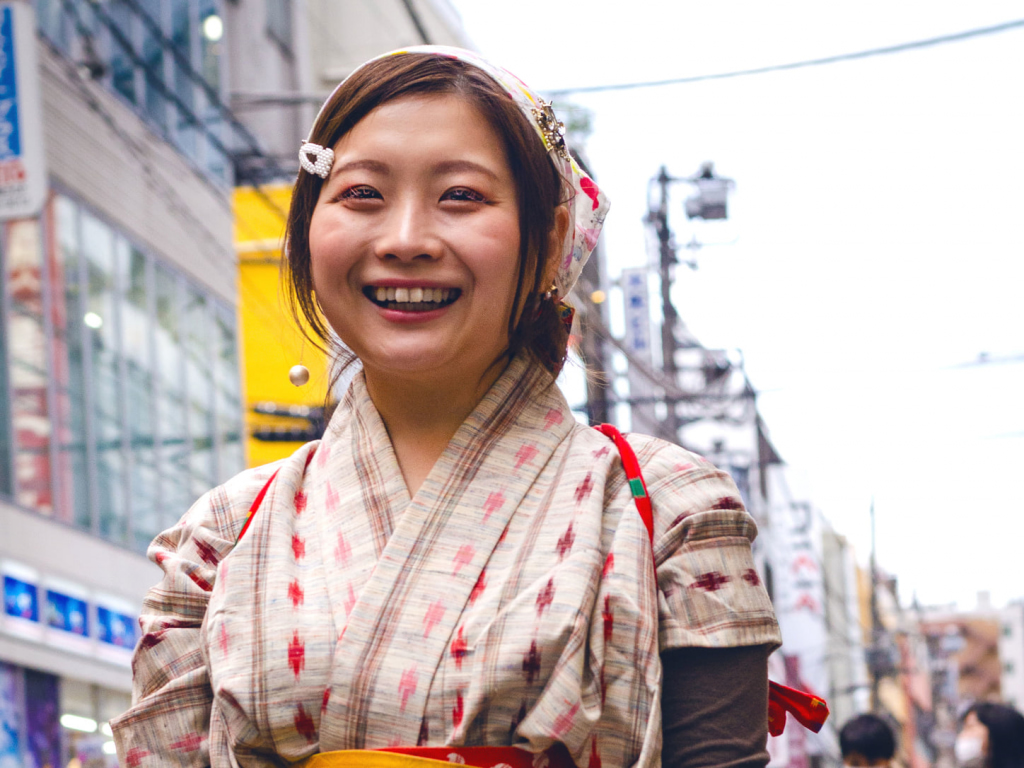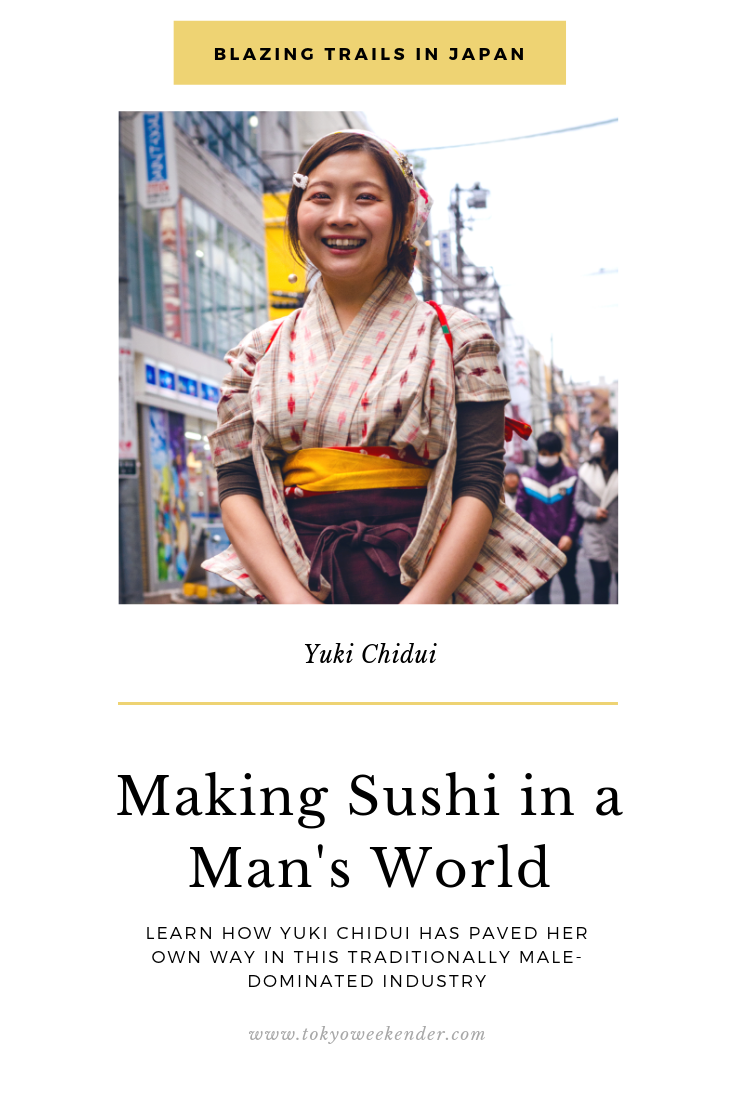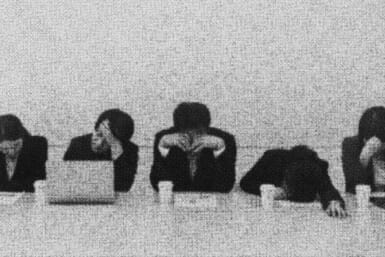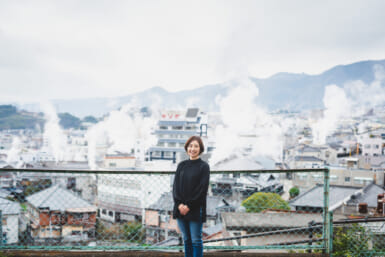Yuki Chidui’s fingers dance in a steady cadence. The sushi chef and owner of Nadeshico Sushi makes pleasant conversation with guests, while she and her staff seamlessly flow behind the counter of her sushi joint in Akihabara, Tokyo’s home for those living on the fringe. Conservative male sushi chefs in Japan would say Chidui has no business playing a sushi chef. Helping chefs, yes, but for a woman to become a sushi chef in Japan is a road that’s usually paved with disappointment. As Chidui tells me, “The sushi world is a boys’ club.”
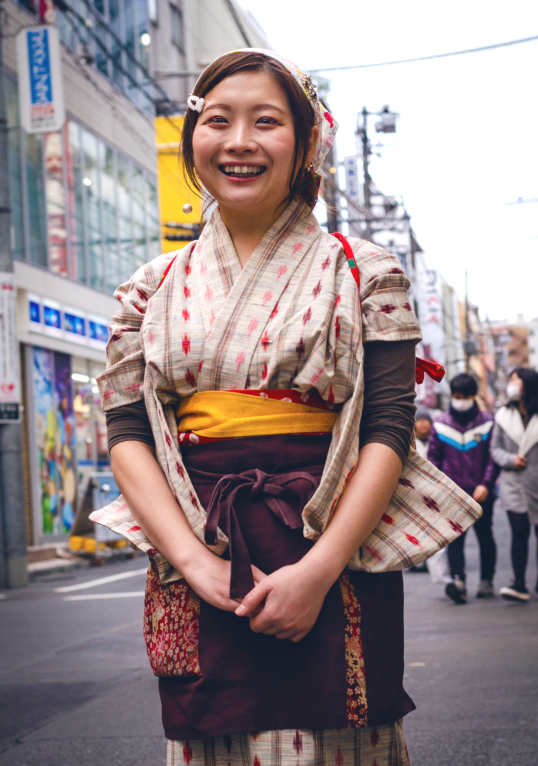
Yuki Chidui
Ban on Women
Women in Japan have long been subjected to discrimination – and not only in the sushi world. Originating from the Shinto religion, there was the ban on women from sacred sites, known as nyonin kekkai. Even though this was abolished in 1872, women are still banned from entering several religious sites, including the sacred island of Okinoshima, a recent addition on the UNESCO World Heritage list. Women are also banned from becoming sumo wrestlers, not allowed a single step inside a sumo ring. People were reminded of this when Maizuru city mayor Ryozo Tatami collapsed while giving a speech in a sumo ring last year, and the women rushing to help him were ordered to leave the sumo ring immediately. As the current emperor is abdicating this year, the media has shed new light on another ban on women – daughters in the Imperial family are barred from throne succession. Nyonin kekkai’s ripples also sometimes translate not in clear bans, but in gender discrimination at many workplaces.
“I wanted the sushi world to change, and I realized I had to start that change”
When it comes to the sushi industry, women have traditionally been excluded from becoming chefs because it was believed that menstruation affected their sense of taste and caused an increase in body temperature, making their hands too warm to handle fish. These beliefs persist to this day, even though medical studies have found that men tend to have warmer hands and feet than women. When Chidui worked part-time at a sushi restaurant, she says she was not allowed to even touch the fish. During the first year or two of helping in the kitchen she accepted the injustices as normal treatment of a rookie, and hoped things would change as time passed. She believes that many women think the same, but when they realize it’s not going to get better, many drop out – or they stay on and accept being less valued than men. “The hours are needlessly punishing, making sure you won’t be able to be a mother and work; things we don’t even think about when we enter into a sushi apprenticeship.” Chidui decided to pave a different way and open her own sushi restaurant.
She has built both her sushi skills and her reputation as an independent chef in a very hostile atmosphere, but she is not bitter. She simply continues to argue for her and other women’s place in the Japanese sushi world with an unwavering smile. She muses how, even when the sushi scene is not actively tripping up women on their path to become chefs, the rules of the game have been rigged so that men have all the advantages.
“Did you know that sushi chefs are not allowed to wear any make-up? We’re also not allowed to have any hairstyle other than a short, unstyled crop. And we should be silent and stern while making sushi,” she tells me. I should mention that, during our interview, Chidui is dressed in a cute traditional yukata and her face is perfectly made up. She is breaking every rule she just listed.
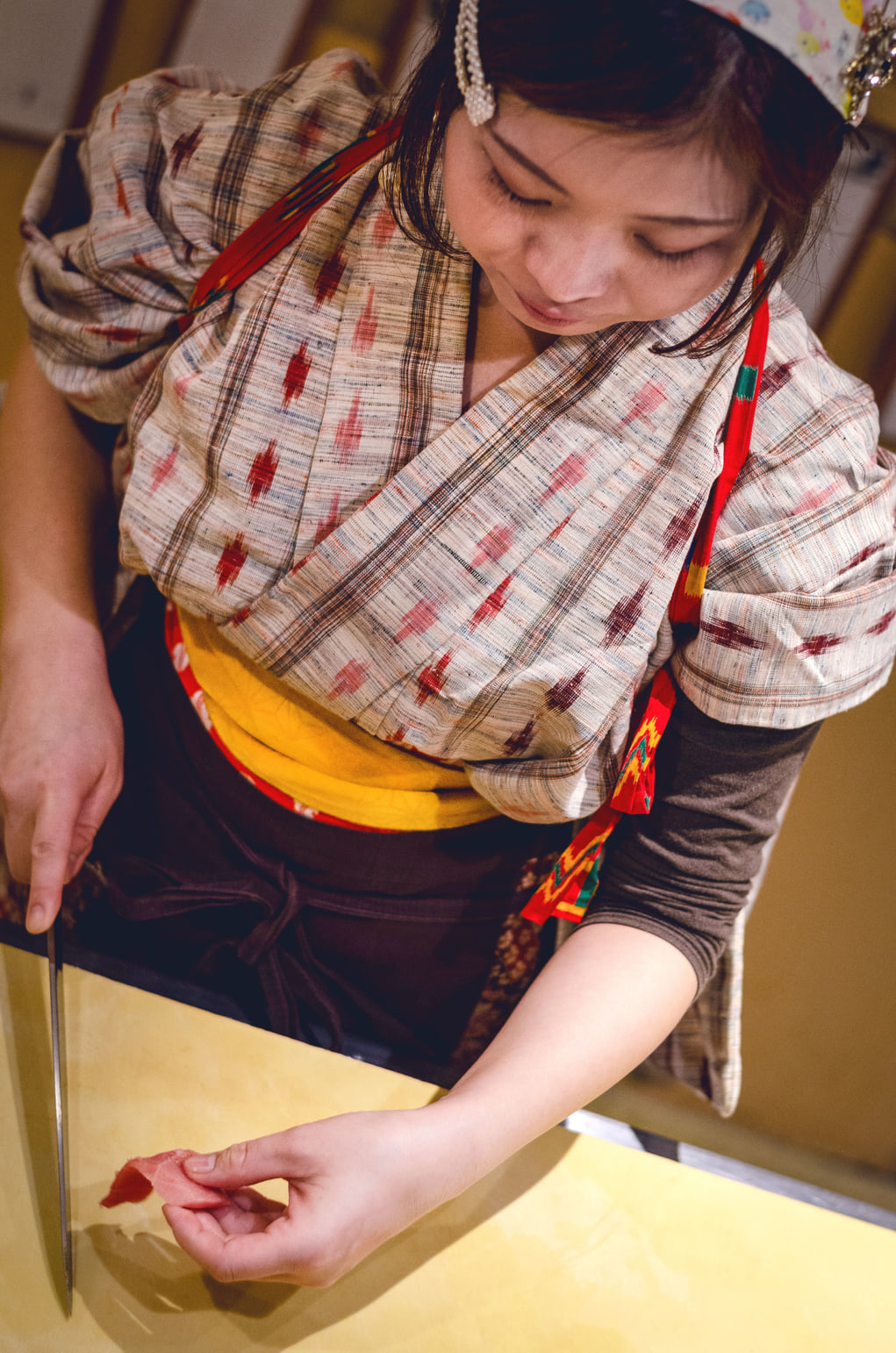
The Evolution of Nadeshico Sushi
As Chidui uses a brush to coat the nigiri sushi with soy sauce, I am reminded of her art degree. She tells me she has always loved the aesthetics of sushi; how every piece is art. This passion for sushi has not wavered even after nine years. She opened Nadeshico Sushi in 2010, despite the struggles that come when entering such a male-dominated industry. Much harder to bear than fellow chefs’ judgments, however, are Japanese customers’ doubts about her sushi before they’ve even tried it. By contrast, foreigners are usually a blank slate and Chidui says they’re often not even aware of the discrimination she’s facing.
Nadeshico Sushi has had other kind of growing pains too. Since they are situated in the otaku paradise of Akihabara, Chidui and her employees have battled assumptions that an all-female staff means they are there as some kind of entertainment along the lines of a cabaret club or a maid café, a slew of which can be found in the surrounding streets. With a smile, Chidui explains why she stayed in Akihabara in spite of that: “This is where trends are born in Tokyo, and this is where people are accepted for who they are. I couldn’t think of a better place for a restaurant that is one of the first of its kind and trying to start a big social change.”
She is immensely proud that she rebelled and persevered, and tries to motivate other women to succeed. Among other activities, she gave a speech at an international conference on Women’s Day in 2018 on the topic of female empowerment in the workplace. At her restaurant, she gives preference to female staff, at least for now, because until the playing field is levelled, women need a helping hand. However, this doesn’t mean men are banned from her restaurant. All she asks from an employee is a smile and the right attitude.
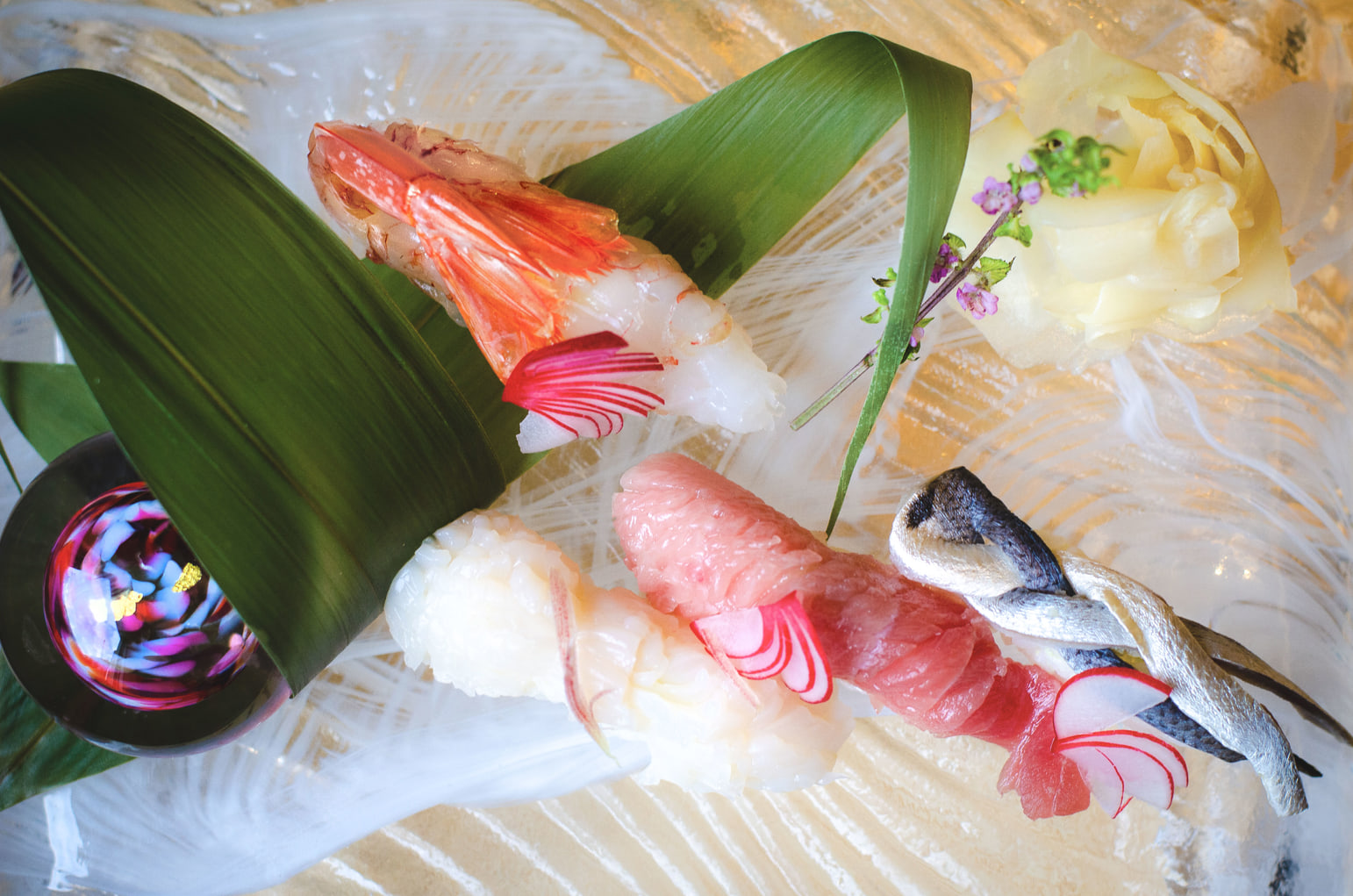
Nadeshico Sushi Academy
Starting in April 2019, Chidui’s revolutionary efforts go one step further. To help aspiring female chefs before they end up dropping out of sushi school, she decided to open her own academy.
The Nadeshico Sushi Academy is an inclusive environment, accepting students regardless of gender or nationality. Chidui has decided to give a head-start to her students, making her school drastically cheaper than most and the program more intensive and full of real experiences. She will also teach communication skills, how to pick out and buy the best fish, and pairing foods with Japanese sake.
Chidui has embraced change. She has challenged how female sushi chefs look and dress, developed new recipes and started offering vegan sushi as well. “I wanted the sushi world to change, and I realized I had to start that change,” she says. “I think stopping change is unnatural.”
For more information, go to www.nadeshico-sushi.com
Photographs by David Jaskiewicz
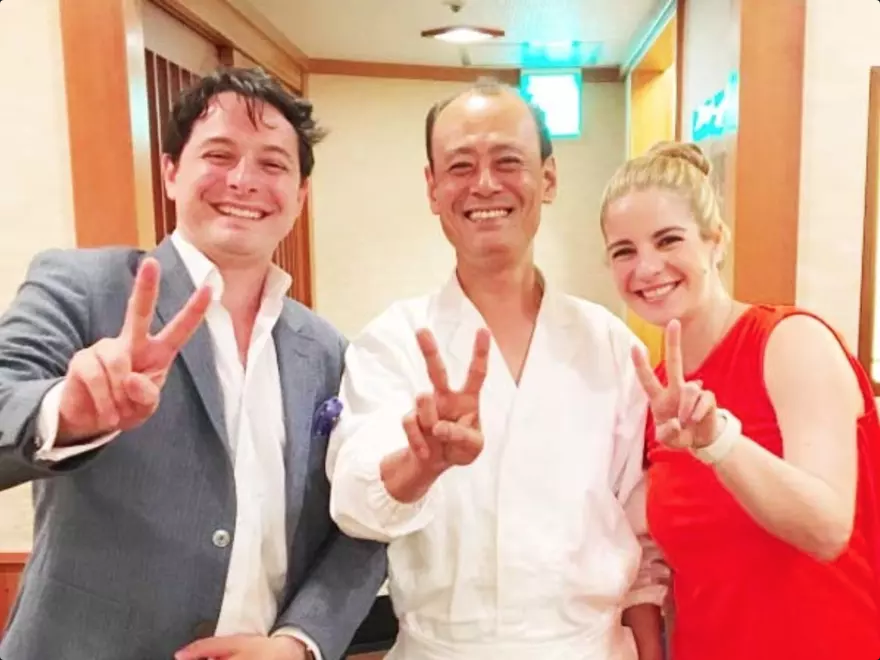
TRY MICHELIN STAR SUSHI
Reservation for Sushi Jiro Roppongi Michelin 2-star Tokyo
For an extra 5% off use our coupon code TOKYOWEEKENDER during check-out.

